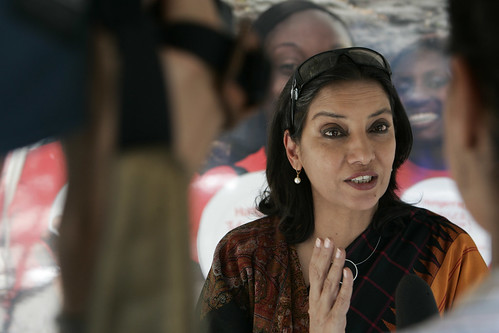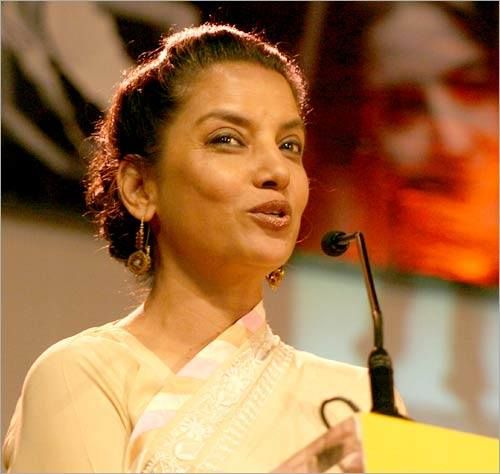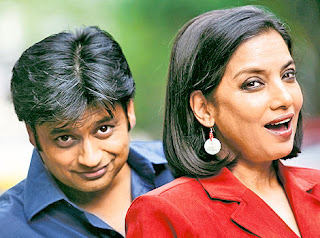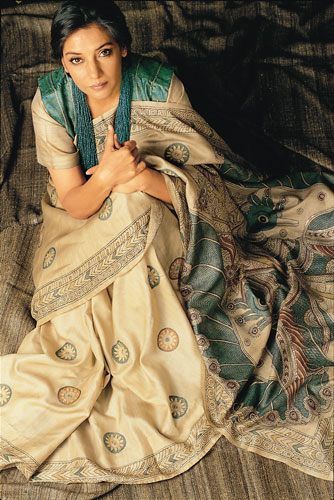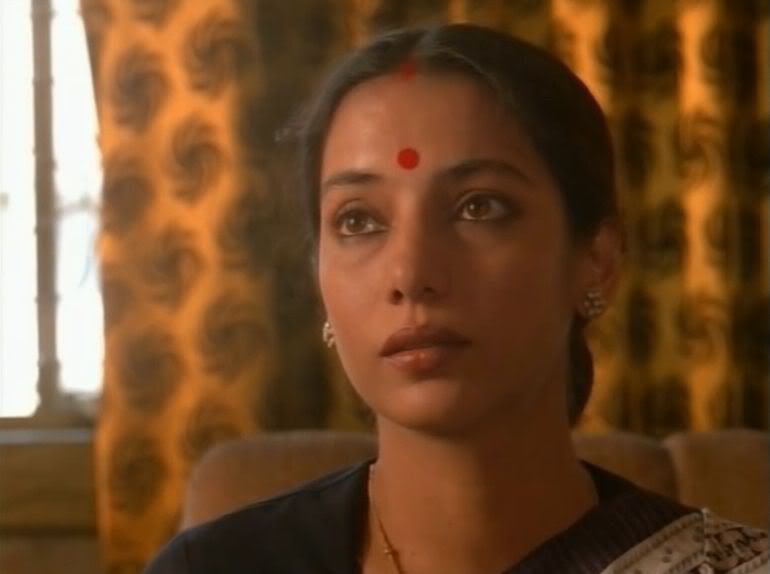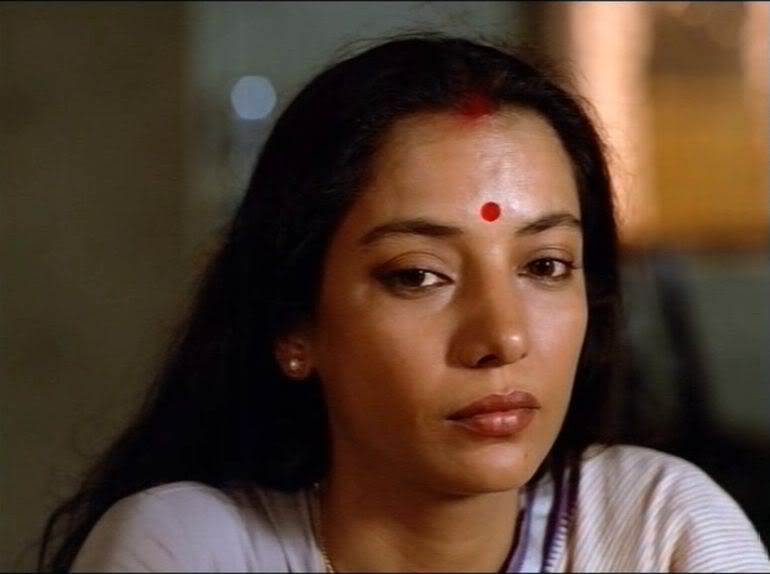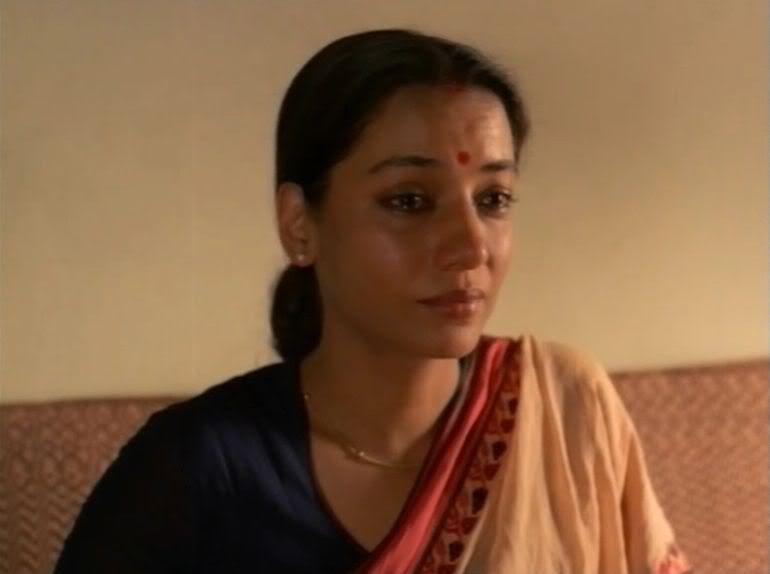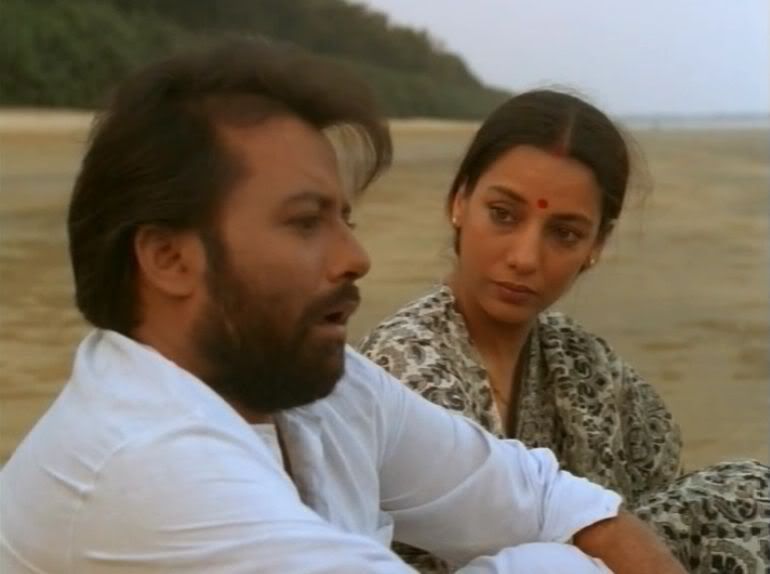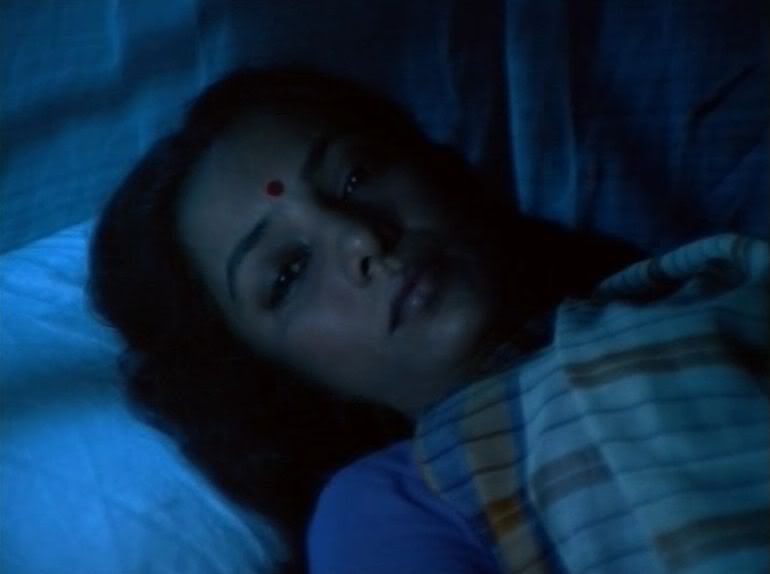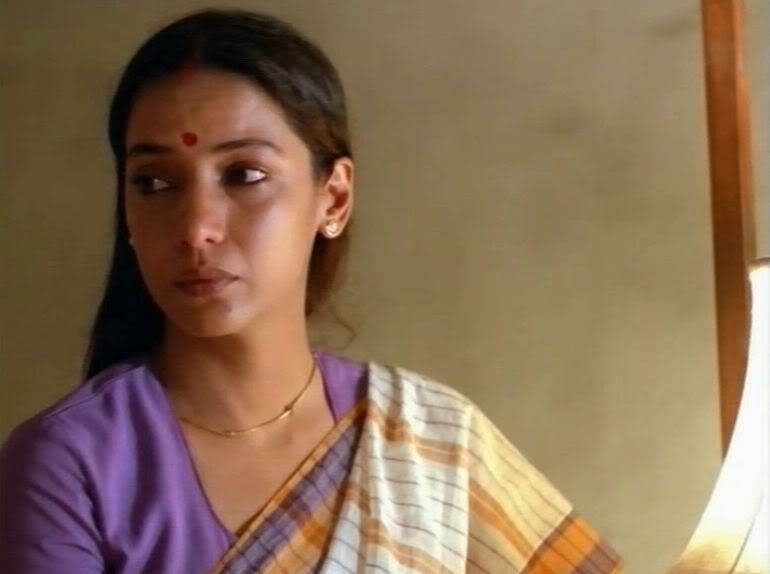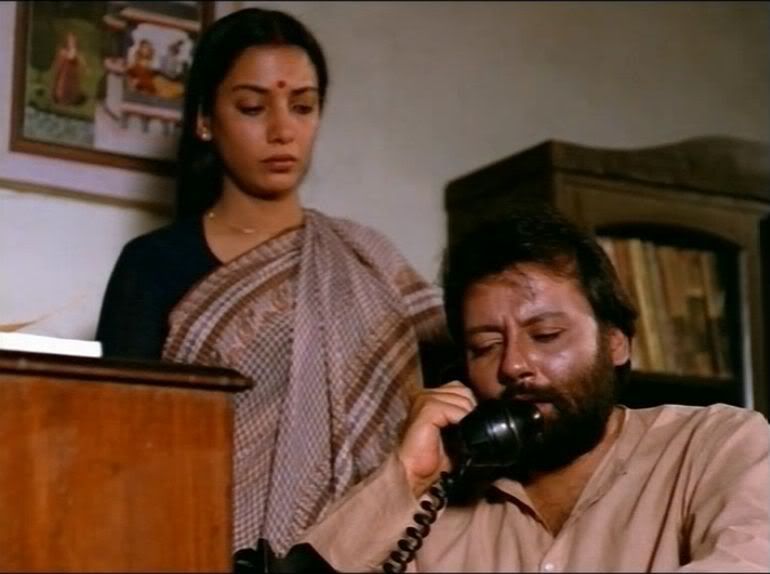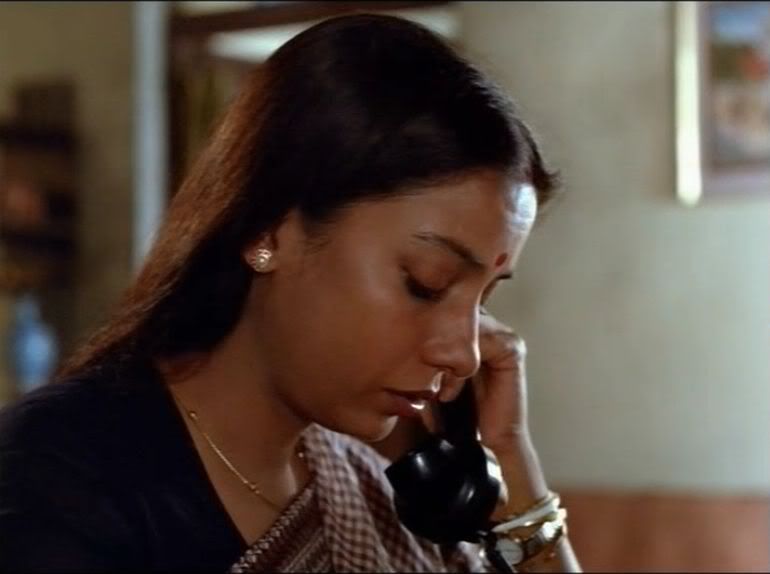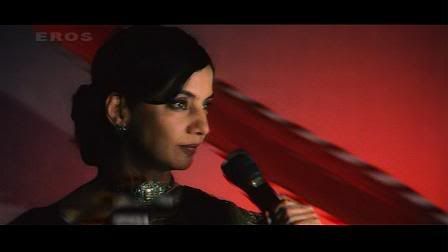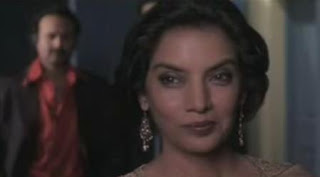This is the third segment of the Geek's Guide to Shabana Azmi. To learn more about the Geek's Guide, please visit the Introduction, as well as Part 1 - Iconic roles and Part 2 - Cog in a brilliant machine.
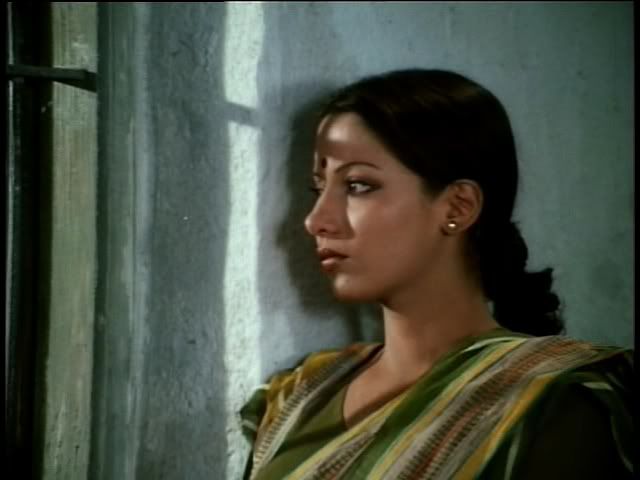 SOLID STARRERS
SOLID STARRERS
These are the films which, while Shabana ji's character can be considered a focus of the story, are for whatever reason slightly less awesome than the iconic roles identified in part 1. These are all still good films that would be enjoyed by any admirer of Shabana ji's; they just, for whatever reason, don't rise to the level of iconic as the movies of part 1 of the
Geek's Guide do.
Nishant (1975). The best thing about Shyam Benegal's second film is that it features a huge crowd of baby art-house giants - Naseeruddin Shah, Kulbhusan Kharbanda, Smita Patil, Shabana Azmi, Anant Nag, Girish Karnad - all in their second or third film out of school. Shabana ji plays a schoolmaster's wife, abducted for the amusement of the youngest brother of the local zamindar. Her performance is more volatile and less introspective than in
Ankur, but I think
Ankur is a tighter and better film.
Fakira (1976). Young
Shabana ji in a full-on masala role, lead heroine opposite her girlhood idol Shashi Kapoor. It's a terrific ride for someone who came to know Shabana ji the way I did, as art-house ki rani; there are several tasty romantic songs, including one that is pretty naughty, and a vicious catfight between Shabana and Aruna Irani. The payoff is a little unsatisfying - Shabana spends the film's climax tied up inside of a statue waiting for Shashi to save her - but it's a fun film nonetheless.
Swami (1977). A bright and promising student has her spirit broken by the weight of tradition and duty. Shabana ji won a Filmfare award for this performance and so it may arguably belong in part 1. I don't put it there, though, because unlike some of the other oppressed characters Shabana ji played later in life, there's no move toward transcending that oppression; Her character in
Swami just gives in to it. The film may be subversive in showing her miserable for having done so; I can't make up my mind. At any rate, Shabana ji is delicious in it, especially in the film's first 45 minutes, when her character is happy and excited by the promise of love and knowledge.
Sparsh (1980). There were some things that were very sweet about this film, but as a movie about a proud, independent blind fellow (Naseeruddin Shah) and his sighted girlfriend (you-know-who), it doesn't quite avoid the trap of waxing preachy. Still, it has sweet moments that make it worth watching - the romance is delicious. This film might arguably be semi-iconic; in an alternate universe it might have landed in part 1 of the
Geek's Guide. Shabana ji's character has a little of that quiet intensity, though it's young and raw; with a different star
Sparsh would have been a radically different film.
Ek din achanak (1989). This is a quiet psychological drama in which not a lot happens; it's mostly about what's going on in people's heads. Shabana ji's character's father disappears one day, and his family tries both to figure out what happened to him and to get used to life without him. Shabana ji's introspective character resembles some of her other contemplative roles, but lacks the intensity, the fire, of the most compelling ones.
Tehzeeb (2003). This is a terrific film. It's great fun to see Shabana ji as a narcissistic and bitchy (but not unredeemable) show-biz character. As a younger woman she might have come across as shrill in such a role; pentegenarian Shabana suits it perfectly, though, bringing her own accomplished presence to bear. The character has an air not just of arrogance, but of arrogance earned; not entirely unlike the actor herself, I am inclined to think. Unlike the actor, though, this character doesn't quite grasp that the world does not revolve around her. And even though her character is a rock star, the themes of the film will resonate for any adult woman who has a mother.

